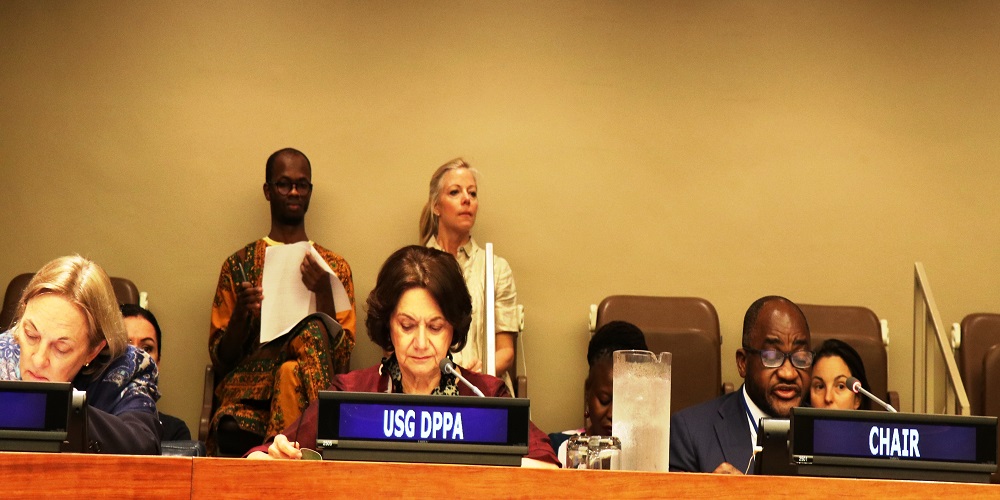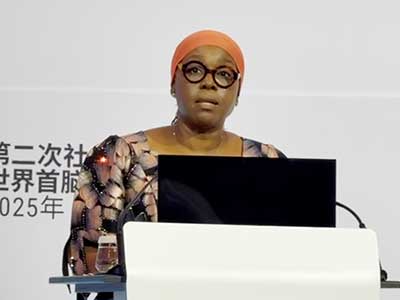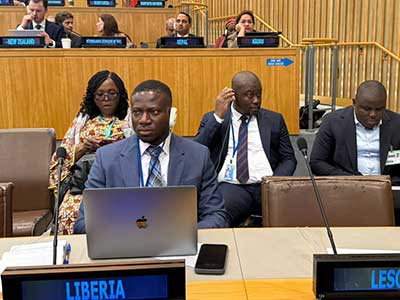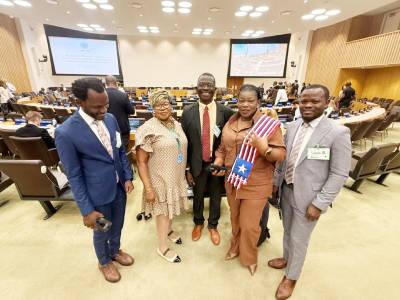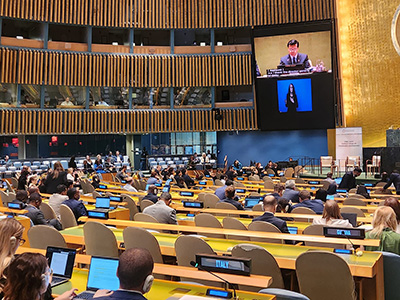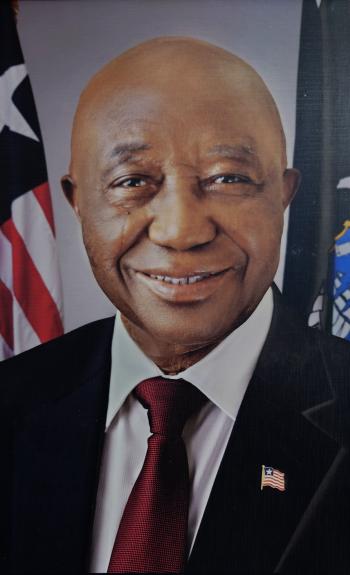The United Nations Special Political and Decolonization (Fourth) Committee, under the Chairmanship of Liberia's Ambassador Extraordinary and Plenipotentiary, and Permanent Representative to the United Nations, His Excellency Dee-Maxwell Saah Kemayah, Sr., on Wednesday, July 3, 2019, held an interactive dialogue on special political missions of the United Nations.
The interactive dialogue was held pursuant to the United Nations General Assembly (UNGA) Resolution 73/101 on the “Comprehensive Review of Special Political Missions”; which requests the Secretary-General to hold regular, inclusive and interactive dialogue on the overall policy matters pertaining to special political missions of the United Nations.
Ms. Rosemary DiCarlo, Under-Secretary-General for the Department of Political and Peacebuilding Affairs (DPPA), and Ms. Lisa Buttenheim, Assistant Secretary-General for the Department of Operational Support (DOS) made keynote presentations on efforts by the Department of Political and Peacebuilding Affairs (DPPA), and the Department of Operational Support (DOS) to ensure that special political missions adapt to evolving peace and security contexts.
Chairing the United Nations interactive dialogue, Ambassador Kemayah stressed the importance of the challenging work that special political missions in the world do, stressing that they operate in environments where conflicts are increasingly complex and intractable.
Ambassador Kemayah asserted that the rise in the average duration of civil war creates enormous challenges for special political missions and increase in length of protracted refugee situation. He quoted a UNHCR estimate that the average length of major protracted refugee situation is now Twenty-six (26) years.
Amidst such challenges, Ambassador Kemayah said it was important for the United Nations interactive dialogue to address questions of how special political missions and the United Nations can strengthen national capacities to ensure continuity, sustain and consolidate peace in Countries following their departure.
The Liberian Ambassador to the United Nations also spoke of the need to address how special political missions can "involve local, national, regional, and international partners, build strong partnerships and work towards greater coordination and coherence between National Governments and partners.
Ambassador Kemayah then paid a special homage to personnel of special political missions and peacekeeping missions of the United Nations serving across the world in harsh conditions for their immeasurable sacrifice.
According to a dispatch from the Permanent Mission of the Republic of Liberia to the United Nations, Ambassador Kemayah recalled that "it took the collective efforts of the United Nations and the international community, immeasurable sacrifices; including lives, and billions of United States dollars to end the turmoil in the Republic of Liberia.
Ambassador Kemayah expressed pleasure that the United Nations Departments of Political and Peacebuilding Affairs(DPPA) and Department of Operational Support (DOS), and many United Nations Member States acknowledged the importance of addressing the root causes of civil conflicts; noting if interventions do not take into consideration root causes of conflict, the probability of relapse into conflict will be high.
The Liberian Envoy also emphasized the need for collaboration with national stakeholders and a clear transition plan and exit strategy as major drivers that can enhance sustainability and welcomed the United Nations Secretary-General's mandate for a transition plan to be developed at all missions of the United Nations.
Citing Liberia as an example, Ambassador Kemyah said the need for economic revival and provision of livelihood opportunities to the youthful population, which makes up sixty-three (63) percent of the Liberian population, solidifies the point for having a transition plan early.
Said Ambassador Kemayah: "Take Liberia for instance, we wouldn't hide that the need for revival of the economy cannot be overly emphasized. The population of our country, Sixty-three (63) percent is youths, which is the case for most of Africa and all over the world at large. In the absence of livelihood opportunities for that set of people; youths; they could engage in activities that they should not engage in. Children and women are the most vulnerable and victimized, so hearing calls for the increased involvement and participation of women in special political missions is encouraging because we know that when women are empowered, the prospect of having a better nation is high."

